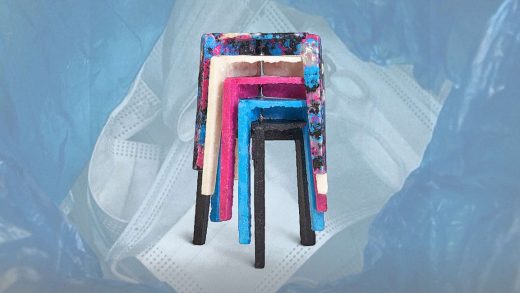Millions of face masks are discarded monthly. What if we turned them into furniture?
The coronavirus has caused devastation around the world, including a new surge in plastic pollution. Every month, an estimated 129 billion plastic face masks and 65 billion gloves are produced. Since plastic doesn’t biodegrade, these items will stay in our landfills and oceans for hundreds of years.
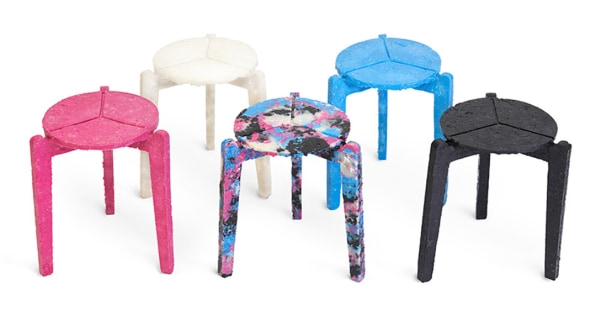
South Korean designer Haneul Kim wants to draw attention to the enormity of the plastic waste problem—while also highlighting creative ways to upcycle PPE. In his latest project, he gathered thousands of thin, disposable face masks and melted them together. The result was a hard, durable plastic that he molded to form nine stools. He then dyed the stools pink, white, blue, and several multicolored patterns. Kim says he hopes these chairs help companies and designers think creatively about how to tackle this problem. For now, it’s a conceptual project, rather than something he plans to commercialize.
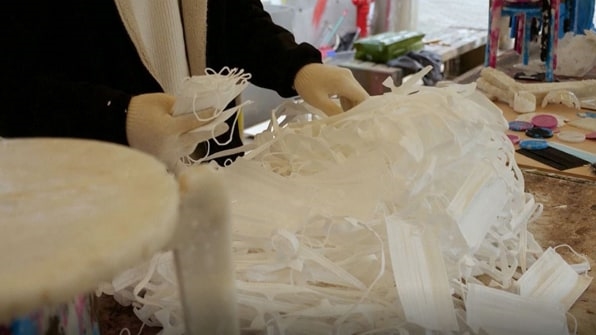
For years, organizations like the Ocean Conservancy have been drawing attention to the problem of plastic waste: The organization says that 150 million tons of plastic are in the oceans, where marine animals often mistake it for food. More than 300 million tons of plastic are produced annually, half of which are for single-use products. In addition to clogging up landfills and oceans, plastic breaks into microscopic particles that can end up in our water stream. “Microplastics threaten animal life and even human life,” says Kim.
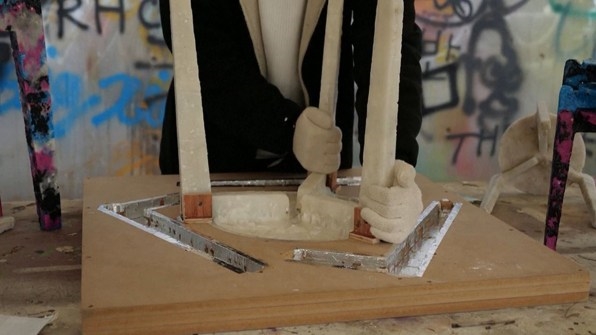
Two years ago, it seemed the world had reached a tipping point in the fight against plastic. Brands like Everlane and Adidas began replacing the new plastic in their products with recycled plastic. Last year, states such as California and Massachusetts imposed bans that curtailed single-use plastic; big retail chains such as Starbucks, the Walt Disney Company, and Walmart promised to ditch plastic straws.
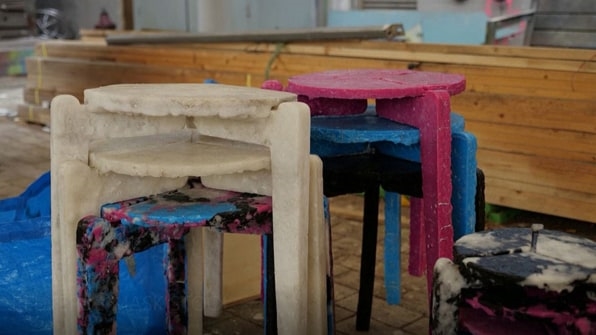
But the pandemic has thrown a wrench in a global effort to reduce plastic pollution. The plastic industry has been actively lobbying to use the coronavirus as an excuse to overturn bans on single-use plastic. And it’s working: In the name of hygiene, many bans have been suspended. Then there’s the massive quantity of new plastic on the market in the form of disposable masks, gloves, gowns, face shields, and more. Most of these products can’t be recycled because regular curbside recycling systems aren’t equipped to process them, and their flimsy designs could clog up recycling equipment.
Kim argues that we shouldn’t throw up our hands and give up. Instead, there may be creative ways to collect these materials and use them for other things, such as furniture. “I hope these chairs evoke the seriousness of environmental pollution and inspire people to think about solving the problem,” he says.
(39)

